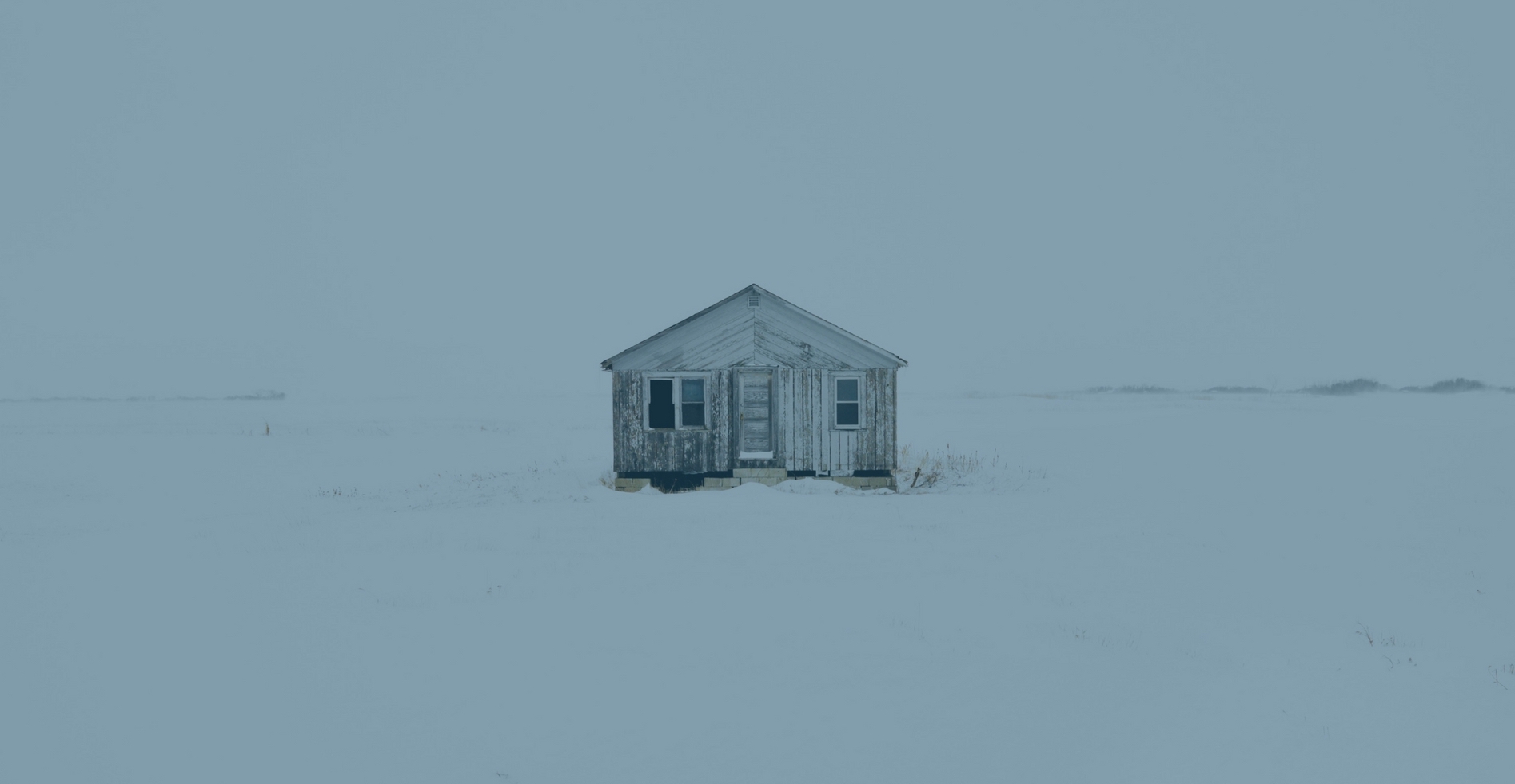1
We ride around looking at buildings that used to be businesses. They once stood at the edge of town, or right outside town, but now they’re buried in a neighborhood of aging, run-down houses. They stand boxy and solid white, boarded over and for the most part still unconverted, though the old general store on Fourth with its FERGUSON’S GENERAL lettering intact across the front still holds a few Fergusons in its second-story home. We went to school with one of the sons. He was slow but strong, angry. We think he’s one of the ones still there. We wonder if he has a family. If he’s just like us. We don’t really want to know. We drive past quickly. Across the street from the old Pentecostal church is another emptied store, and we stop in front of it. The whole bottom story is covered by full sheets of plywood, and the upper story is all tall windows, broken glass. The lot is covered in crabgrass browned by early frosts.
“Farrier,” you say, as though it’s evident and that explains it all. We drive on.
2
You stand in the hall poking at the window blinds. They’re old vinyl, faded yellow and nearly melted with years of endless sun. Your fingers walk to eye-level, push a slat up so you can see out, and then climb higher. Above your head you reach to press your finger, through the hole of a bent, half-broken slat, all the way to the fogged glass.
“The previous tenant,” you say, “was six-foot-five. Easy.”
We paint—all the walls and trim and even a couple of the doors. We rip up the carpet to find hardwood floors in need only of polishing. When we’re done with the kitchen and bathrooms and fixtures and faucets we’ve built a whole new palace around ourselves. The world outside, I imagine, remains the same. I stand in the hall, push to the tips of my toes to see out the hole in the blinds. I try to find what he kept coming back to see, that man before us in our home. The houses line low and dark against the evening street. A car passes slowly. Two children wrapped in thick, striped coats bounce through their yard, dirt worn bare beneath their feet. The air picks up and shows their feet. They scream and cut into the street, unalarmed.
3
We read during the day and put together puzzles by candlelight and sleep beneath every blanket we own. We charge our cell phones in the car, but there’s no reception. The roads are an uncut wreck. We crab walk the car to the little market out on the highway. They’re only taking cash, and we scrape together enough change to buy milk, bread, chips, a couple candy bars. The cashier tells us we’re only the third or fourth car he’s seen. You ask if we’re the crazy ones or everybody else. He shrugs.
The power’s out three days, longer the farther out you go. When the lights flicker to us again we dump puzzles and books and all our emergency life back into closets and drawers. We run the heat higher than it needs to go. We wear less and less and finally go unclothed. I cross the house again and again in only a John-Deere cap. On TV they warn we’re not out of the woods just yet, the world is frozen over and growing colder still, but we stop looking out our door. We hide away like bears or bats or groundhogs or snakes. After a while you call me to the table again. We sit across from each other naked and dizzy, hungry and warm. There’s no hiding and nothing to do now. We wait.
